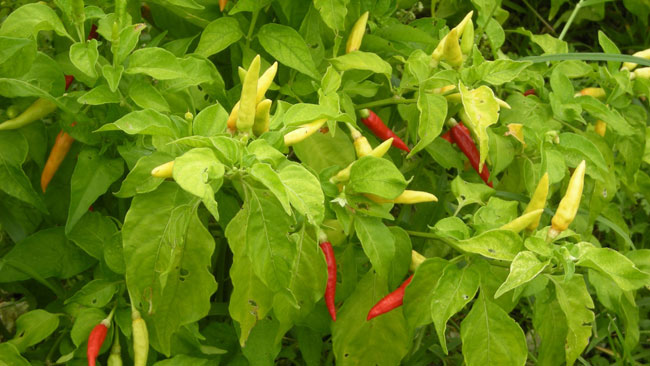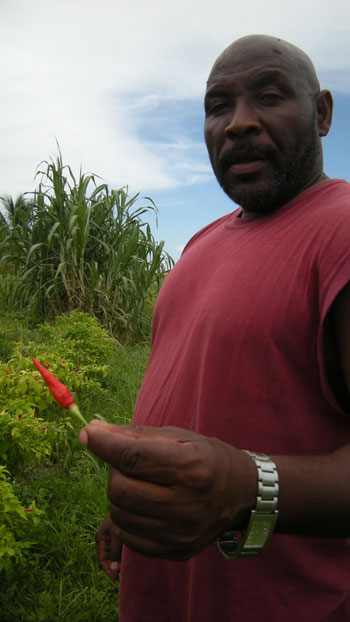|
From:TheBahamasWeekly.com Bahamas Information Services Updates
Nassau, Bahamas - Special measures are being taken at the Gladstone Road Agricultural Centre (GRAC) to preserve the potent purity of the native Bahamian goat pepper, the fifth hottest in the world.
“Goat peppers are specifically
Bahamian,” Basil Miller, Senior Agriculture Officer at GRAC asserted
“They are native to Andros.”
Being prolific reproducers,
Bahamian goat peppers need plenty space and they must be isolated to
maintain their genetic purity.
“We have to keep them more
than 600 feet away from any other pepper to avoid inbreeding,” he
explained.
And the Bahamian goat pepper
is in such demand, GRAC cannot produce sufficient seeds which are distributed
through the Ministry of Agriculture’s Fish and Farm store, Potter’s
Cay Dock.
“The potential is great for
business,” said Mr Miller, “however farmers will have to unite.
“What we have found is that
you can grow peppers all year round. There is no season for peppers.”
He noted that as an incentive
Bahamas Agricultural and Industrial Corporation making land available
to persons interested in farming.
Other varieties grown at GRAC
include finger pepper, native to Eleuthera, and Tabasco pepper, native
to New Mexico, which grows well in The Bahamas.
Harvested peppers go through
a wet extraction process. The flesh is separated and the seeds
are deposited in a bin.
They are then dried in the sun and baked for a day. About 100 sample seeds are isolated and tested for 11 days to determine their rate of germination.
Native goat peppers germinate
95 percent of the times, 10 per cent better than the international standard,
Mr Miller explained.
He underscored the importance
of a national seed bank. During passage of Hurricane Andrew over Eleuthera
in 1992, the finger pepper was almost lost as a genetic variety.
“We were saved because a
lady had some seeds in her kitchen cupboard that weren’t destroyed
by the salt water,” said Mr Miller
“Once we establish a germ
bank, we will always have the seeds. If we ever experience a major
hurricane, we will have seeds so when the coast is clear we can plant
our seeds again.”
Farmers who grow more that
one crop at a time, without isolating them, harvest cross-bred crops,
substandard to genetically pure crops, Mr Miller warned.
“They should concentrate
on growing one crop at a time.
“Some farmers try to grow
too many things in the same field and open their crops to diseases.
Crops must be grown with other crops from different families.”
|


